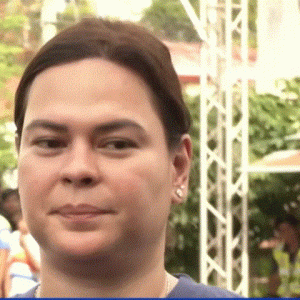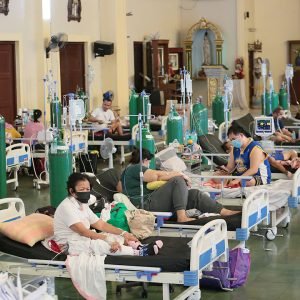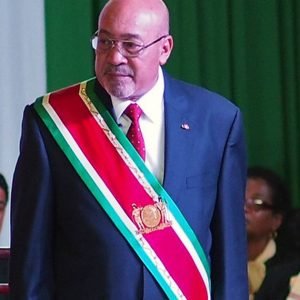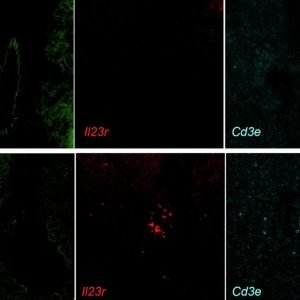
A compromise agreement is being drafted to resolve issues from the first two phases of Cebu City’s traffic light system modernization project, while a councilor has called on the Commission on Audit (COA) to conduct a fraud audit on the project.
A former traffic management head, meanwhile, suggested that instead of moving forward with the third phase of the traffic light project, the City should allocate the budget to hire more traffic enforcers and procure large trucks to improve traffic management.
Another councilor also warned that the city government must be more cautious in the bidding process and contractor selection for the third phase to avoid issues encountered in the first two phases of the project.
The executive department is looking to allocate P240 million in budget allocation under the proposed 2025 annual budget for the continuation of the traffic light system modernization, which will cover 40 intersections in the city.
Cebu City Councilor James Anthony Cuenco, in a phone interview on Wednesday, Oct. 23, 2024, said Triune Electronics Systems Inc. and Cylix Tech CCTV, the suppliers of the first and second phases of the modernization project, will no longer be allowed to participate in the bidding process for the third phase, citing that the City Government needs a “more modern system.”
Cuenco said there will be only minor adjustments to the equipment used in the first two phases to ensure compatibility with the specifications required for the third phase’s bidding process.
The third phase will also incorporate the recommendation of the Metro Manila Development Authority (MMDA).
Proposed agreement
Cuenco said the City and the supplier have both agreed to execute a compromise agreement.
According to the agreement, the City will pay the supplier P50 million to resolve the unpaid dues and address issues with the equipment and system from the first two phases, fully settling all obligations.
The supplier then will activate the unused equipment in Phases 1 and 2 for the City Government to use to manage its traffic situation.
Both will also no longer pursue lawsuits due to unsettled payments and other concerns relating to the project.
Cuenco, however, clarified this is still in the proposal stage, and before it will be executed, it must be first reviewed and approved by the City Council.
“If a compromise is pushed, the lawsuit will be gone; everything is settled. At least what’s important is that the existing equipment can be used,” Cuenco said.
Cuenco said the supplier has delivered the equipment for Phase 1; however, it was not activated due to unsettled payment. He added that the City Government does not have the expertise to operate the system.
As part of the compromise agreement, the supplier promised to activate the equipment to be used by the City Government.
Fraud Audit
City Councilor Jocelyn Pesquera told SunStar Cebu in a text message on Wednesday that she will ask COA to conduct a fraud audit on the first two phases of the project.
Under COA’s definition, the fraud audit conducts a specialized investigation into allegations of fraud within government transactions. This includes forming a special audit team to investigate fraud and corruption.
Last Oct. 9, Pesquera, through a resolution, sought out legal opinion from various government agencies in response to an ultimatum issued by project suppliers, demanding full payment.
The contract between the City Government and the supplier was questioned after it was discovered that instead of the late mayor Edgardo Labella’s signature in the agreement, it was former city administrator Floro Casas Jr. who signed the documents.
The supplier demanded Mayor Raymond Alvin Garcia the full payment of the unsettled obligations of the City Government, or else it would seek intervention from the Office of the Ombudsman.
On Monday, Garcia said the City Hall has yet to settle the remaining financial obligations to the supplier for the first and second phases, which had a total cost of P480 million and were inaugurated in 2020.
In the first phase, 90 percent of the P232 million cost has been paid. For the second phase, the City Government has released 15 percent, or the mobilization cost, of the P248 million project.
The supplier had replaced the more than 40-year-old city traffic lights, installed by Sydney Coordinated Adaptive Traffic System (Scats), with modern digital traffic signal lights and improvements including underground cables, high-definition cameras and artificial intelligence to detect traffic flow and automatically adjust signal timing.
Kent Francesco Jongoy, assistant chief of the Cebu City Transportation Office (CCTO), said the proposal for phase three is still pending approval from the Traffic Management Coordination Committee (TMCC) before it can be endorsed to the City Council.
Alternatives
Former TMCC chairman Rico Rey Francis “Koko” Holganza suggested that instead of continuing the phase three project, the City could use the budget to hire more diligent traffic enforcers and procure large trucks to improve traffic conditions.
In a text message on Wednesday, Holganza said the first two phases of the project cost the city an average of P10.6 million per intersection for the installation of modern digital traffic signal lights in 2019.
However, comprehensive reports from the experts of MMDA after it inspected the city’s traffic signal lights system last year showed a similar system in Metro Manila was better, and it only cost them around P600,000 per intersection.
He said: “One may ask, is the highly-priced Cebu City traffic light system worth the millions spent for its installation? Has it helped improve the traffic situation in Cebu City? If yes, good. If not, is it wise then to continue spending public funds in the hundreds of millions for a system that does not work?”
In 2023, Holganza-led TMCC cast doubt on the efficiency of the new system after several of its traffic lights had malfunctioned.
The TMCC also compared the new system to the older Scats, which was found to be more real-time adaptive and capable of managing traffic situations in the city compared to the new system installed.
The new supplier first claimed that the new system was the “most advanced in the world.”
“If the City has P240 million to spare, rather than waste it on a highly-priced, overly marketed traffic light system that does not significantly improve the traffic situation in our city, they should spend it for more important projects,” said Holganza.
Holganza said a portion of the P240 million allocation could be spent to hire more “serious and diligent traffic enforcers for field assignments.”
He said the funding could also be used to procure two large tow trucks and more high-visibility vests/devices/uniforms for field personnel, while the City Government could purchase early warning devices to forewarn motorists on possible chokepoints and more patrol bikes for traffic field personnel.
These alternatives could significantly improve traffic management in the city, Holganza said.






